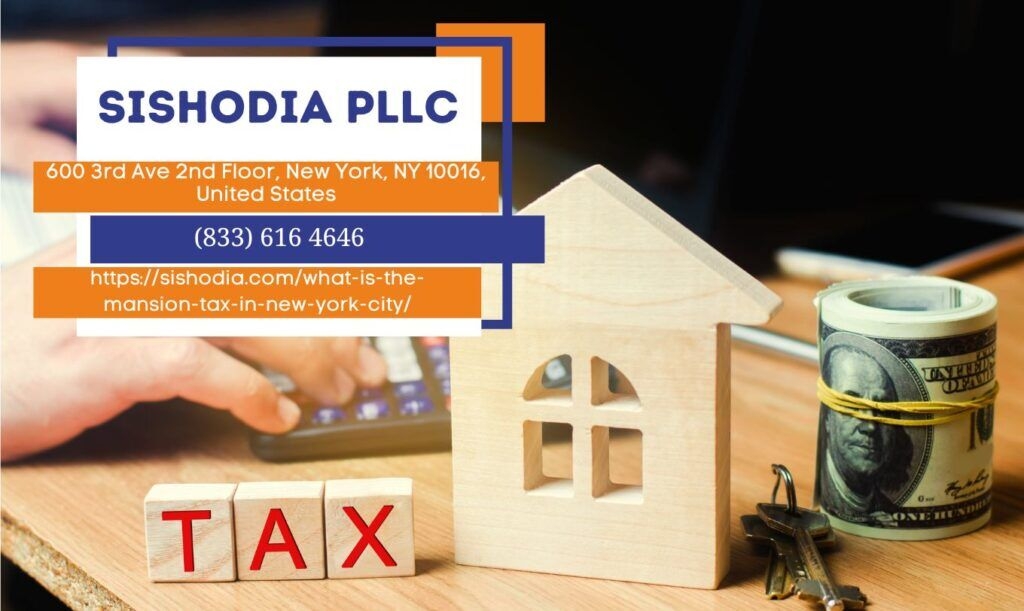Understanding the mansion tax is vital for anyone navigating residential property purchases in New York City. Natalia A. Sishodia (https://sishodia.com/what-is-the-mansion-tax-in-new-york-city/), a New York City real estate lawyer, addresses the often misunderstood tax and its implications for buyers in today’s real estate market. Though commonly associated with luxury estates, the mansion tax now applies to a wide array of properties due to rising real estate prices. At Sishodia PLLC, Natalia A. Sishodia offers practical guidance on how this tax affects modern buyers and outlines potential legal strategies for managing its cost.
A New York City real estate lawyer like Natalia A. Sishodia recognizes that today’s homebuyers are frequently subject to this tax even when purchasing modest apartments. Introduced in 1989 to balance the state budget under Governor Mario Cuomo, the tax was intended to impact wealthier individuals purchasing homes over $1 million. Since then, the definition of a "mansion" has shifted dramatically, yet the tax threshold remains largely unchanged. This has led to many buyers paying mansion tax on homes that are far from opulent. Natalia A. Sishodia helps clients understand this evolving reality and its impact on property acquisition.
Today’s rates reflect the current market more accurately but are still burdensome. A New York City real estate lawyer must now help clients navigate a graduated tax system, where rates increase from 1% for properties priced at $1 million to as much as 3.9% for those exceeding $25 million. Natalia A. Sishodia explains that even a $1.2 million apartment results in a $12,000 tax bill at closing. This significant expense is added to other closing costs and must be budgeted accordingly. The tax is generally the buyer’s responsibility unless otherwise negotiated, making legal counsel essential to avoid missteps.
The mansion tax applies to a broad range of residential property types, including single-family homes, condos, and co-ops. As Natalia A. Sishodia points out, it can even apply to properties only partially used as personal residences. Buyers and sellers alike need to be aware of how the tax is calculated and who is responsible for paying it. One notable quote from the article highlights this consideration: “Whether you’re a buyer, seller, or investor, understanding who is responsible for paying the mansion tax and how it applies to your transaction is crucial.”
Natalia A. Sishodia also outlines several strategies that buyers might use to reduce their mansion tax liability. These include negotiating a lower purchase price to stay under a threshold, separating non-real estate items like furnishings from the transaction, and utilizing legal entities such as limited liability companies. Each of these approaches must be carefully documented and executed within legal parameters to be effective. These strategies offer potential relief but require thorough planning and legal review to ensure compliance with tax laws.
The importance of anticipating the mansion tax during the budgeting process cannot be overstated. Natalia A. Sishodia encourages clients to treat it as a standard part of their closing cost calculations, regardless of property type. A failure to do so could lead to last-minute financial strain or complications in finalizing the purchase. At Sishodia PLLC, the legal team works to provide clear, actionable advice that aligns with the realities of New York’s real estate market.
Navigating property transactions in New York City means dealing with more than just price tags and square footage. The mansion tax represents a meaningful financial and legal factor that buyers must address early in the process. With the guidance of a New York City real estate lawyer such as Natalia A. Sishodia, clients are better equipped to make informed decisions and take advantage of strategies that could reduce their financial exposure.
Understanding the mansion tax is one part of a broader effort to approach New York real estate transactions with clarity and confidence. Natalia A. Sishodia provides practical legal support for buyers seeking to minimize costs and manage legal requirements effectively. The information offered reflects current law and market conditions, making it a timely resource for anyone considering a residential purchase in the city.
Those looking to purchase property in New York City should evaluate all potential taxes and closing costs before committing to a deal. The mansion tax, with its tiered structure and application to a wide array of properties, should not be overlooked. Working with a legal professional like Natalia A. Sishodia at Sishodia PLLC provides valuable insight and may lead to better outcomes in both planning and execution.
About Sishodia PLLC:
Sishodia PLLC is a New York-based real estate law firm that offers legal services for buyers, sellers, and investors navigating residential and commercial real estate transactions. The firm is committed to helping clients make well-informed decisions that align with New York’s legal and financial landscape. Led by Natalia A. Sishodia, the team is dedicated to providing sound legal support for a variety of property-related needs.
Embeds:
Youtube Video: https://www.youtube.com/watch?v=Kxf5Md0GkfU
GMB: https://www.google.com/maps?cid=12450537318741950980
Email and website
Email: natalia@sishodialaw.com
Website: https://sishodia.com/
Media Contact
Company Name: Sishodia PLLC
Contact Person: Natalia A. Sishodia
Email: Send Email
Phone: (833) 616-4646
Address:600 3rd Ave 2nd floor
City: New York
State: New York 10016
Country: United States
Website: https://sishodia.com/

